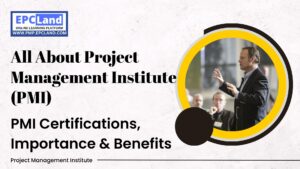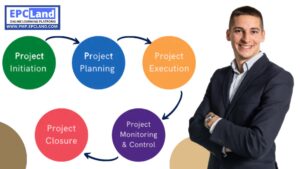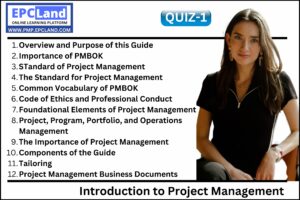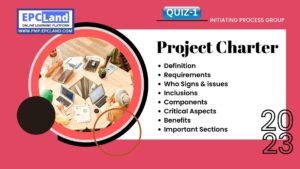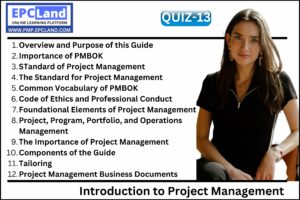Table of Contents
ToggleWhat is Project
A project is defined as a set of tasks that must be completed to achieve a certain result. According to the Project Management Institute (PMI), the term project refers to “a temporary undertaking with a definite beginning and end.” It can be managed by one person or hundreds, depending on complexity.
Don’t Miss the 1000+ MCQ questions & hundreds of quizzes on PMP Knowledge Areas and Various important sections.
What are important features of Project
A project is a set of interdependent tasks with a common goal. A project has the following properties:
- Clear start and end dates – Some projects last for years, but they don’t last forever. You want a clear beginning and a clear end, and an overview of what happens in between.
- Projects create something new – each project is unique and creates something that didn’t exist before. A project is his one-off activity, never repeated in exactly the same way.
- Projects have limits – Projects work within certain constraints of time, money, quality and functionality. More on this in a later section.
- Projects are not business as usual. Projects are often confused with processes. A process is a set of routine, predefined steps to perform a specific function. For Example: Expense Reimbursement Approval; It’s not a one-time action. Hence, it determines how certain functions are executed each time.
Attempt Quiz-1 on Projects in Project Management

Time's up
Understand the Diversity of Projects
Projects come in many shapes and sizes. A project can:
Growing: Like the construction of the Hoover Dam, it will take years and huge budgets to complete.
Make it smaller: Like the weekend project of setting up paths in the lawn
Get more people involved: like wedding planning
Only me: Sort the photos in your wedding album
What are various common Project types
There are many different ways to implement a project. Here is an example project:
Traditional project:
These are executed sequentially step by step. These phases are typically initiation, planning, execution, monitoring, and completion. Most costly infrastructure projects use traditional project management.
Agile project:
They are mainly used in software development. They are human-oriented and adaptable. It also generally takes less time to process.
Remote project:
Remote project management is typically used by distributed teams that rarely meet in person. Dealing with freelancers is an example of a remote project.
Agency project:
Agency projects are outsourced to agencies who are likely to have projects with multiple clients. Marketing and design projects are often outsourced to agencies.
Project Constraints
Every project operates within certain boundaries called constraints:
- Project scope
- Project schedule
- Project Cost
Don’t Miss the 1000+ MCQ questions & hundreds of quizzes on PMP Knowledge Areas and Various important sections.
Attempt Quiz-2 on Projects in Project Management

Time's up
Project implementation methods
Project implementation may vary depending on the methodology used. In traditional project management, implementation occurs in five phases.
Initiation
This phase is to discuss the project in order to convince the project participants. A Project Initiation Document (PID) is created with basic information about the project, such as resource utilization and feasibility.
Planning
This phase occurs when the project is approved by the stakeholders. This is a critical phase that includes various tasks such as contingency planning, task assignment, and resource sharing planning.
Execution
In this phase the real work is done. Periodic checks are performed to ensure that execution is on schedule.
Monitoring
Monitoring occurs in parallel with execution. Constant monitoring by a project manager is required to ensure that work is progressing smoothly.
Closure
This phase deals with the important closing tasks of the project, such as delivering the project to the customer and documenting the lessons learned from the project.
Once these steps are completed, the project is well executed.










